
Google launches watermarks for AI-generated images
In an effort to help prevent the spread of misinformation, Google on Tuesday unveiled an invisible, permanent watermark on images that will identify them as computer-generated.
2023-08-31 00:23
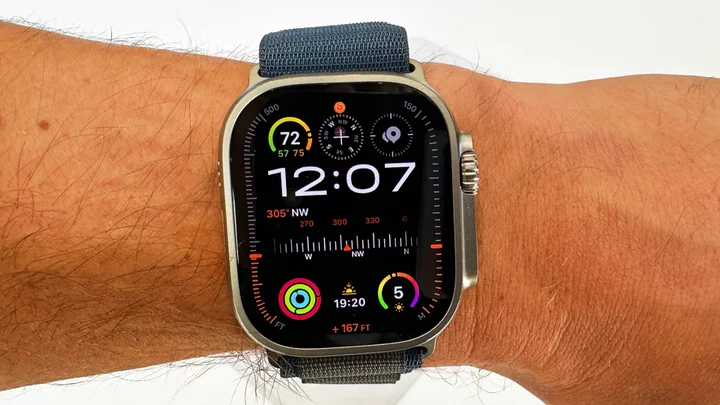
Apple Watch Series 9 and Ultra 2 hands-on: Double-tap feels cool, but is it a game changer?
Perhaps the most Apple moment in today's keynote at Apple Park was the introduction of
2023-09-13 10:23

‘I’ve got Elon Musk dying’: Voice clone baffles tech billionaire
Elon Musk has questioned reality after speaking with a man with a voice that sounds “exactly like him”. The tech billionaire took part in a Spaces event on X, the company formerly known as Twitter than he purchased last year. Also taking part in the discussion was Adrian Dittmann, whose voice and laugh sounds remarkably similar to Mr Musk’s. “That was next-level,” Mr Musk posted on X following the encounter. During the eight minute interaction, the X owner frequently questioned whether Mr Dittmann was a real person or an artificial intelligence voice clone. “My mind is literally melting out from my ears right now,” Mr Dittmann said. “This is a fully recursive psy-op, that’s what this is. We are the simulation. I literally put out a tweet saying, ‘hey, we are the matrix, like we make our own things real... I don’t want to break the matrix, I want to reshape it such that it agrees with us’. That’s my mission, personally, I don’t want to break, I want to shape.” Mr Musk responded: “At some point there’s just going to be like 100 AI clones of me that sound exactly the same.” Mr Dittmann pushed back by saying he was not an AI, adding: “This is what I unironically sound like all the time. This is natural me.” Another member of the X Spaces, Borovik.eth, defended Mr Dittmann, posting: “Adrian isn’t really an impersonator. He’s just a guy who sounds exactly like him. I’ve been on a lot of spaces with him over the last few months.” In an effort to prove that he was human, Mr Dittmann made a chomping noise into his microphone. “You can hear my meat flaps,” he said, to which Mr Musk burst out laughing. “I’ve got Elon dying right now, that’s great,” Mr Dittmann said. Another member of the Spaces event said: “I can’t tell if the real one is talking or...” Mr Musk questioned Mr Dittmann about his background, though they did not share much in common. Mr Musk grew up in South Africa before moving to Canada and eventually settling in the United States, whereas his voice doppelganger claimed to have grown up in Gibraltar and Morocco before moving to somewhere in Oceania – he did not reveal where for privacy reasons. Read More What is Elon Musk’s ‘everything app’ X? Elon Musk’s Twitter bans ad showing Republican interrupting couple in bedroom Kanye West allowed back on Twitter following his ban over antisemitic conspiracies As Twitter becomes X - Seven disastrous rebrands from Royal Mail to New Coke
2023-07-31 22:18

EU opens an investigation into Elon Musk's X over 'disinformation'
The EU has opened an investigation into Elon Musk's X over the possible spread of terrorist and violent content, and hate speech, after Hamas' attack on Israel. The EU's industry chief, Thierry Breton, confirmed on Thursday the bloc had sent Twitter/X a "formal request for information" to determine whether the platform was complying with the Digital Services Act (DSA) - a law designed to protect users of big tech platforms which came into effect November, as misinformation about the conflict between Israel and Hamas spreads on social media. In a statement on Thursday, the EU said “the European Commission services sent to X a formal request for information under the Digital Services Act (DSA)”. “This request follows indications received by the Commission services of the alleged spreading of illegal content and disinformation, in particular the spreading of terrorist and violent content and hate speech. The request addresses compliance with other provisions of the DSA as well.” In his letter to Musk, Breton said "violent and terrorist content" had not been taken down from X, despite warnings. Breton did not give details on the disinformation he was referring to in the letter, but said instances of "fake and manipulated images and facts" were widely reported on the social media platform. Responding on X, Musk said: "Our policy is that everything is open and transparent, an approach that I know the EU supports. "Please list the violations you allude to on X, so that the public can see them." X chief executive Linda Yaccarino also said earlier on Thursday the platform had removed hundreds of Hamas-affiliated accounts and taken action to remove or label tens of thousands of pieces of content since Saturday's attack. Sign up to our free Indy100 weekly newsletter Have your say in our news democracy. Click the upvote icon at the top of the page to help raise this article through the indy100 rankings.
2023-10-13 18:16

Amazon rolls out robotic system at Houston warehouse to speed up deliveries
Amazon.com said on Wednesday it was using a robotic system at one of its Houston warehouses to improve
2023-10-18 23:15

Tristan Tate slams journalist amid alleged COVID vaccine connection to Shane Warne's death, Internet says 'stupid anti-vaxxer'
Tristan Tate has received backing from fans for his comments on Matt Shea, with supporters rallying behind him
2023-06-22 19:54

Canada to Reveal Plan for Emissions Cap on Oil and Gas This Fall
Prime Minister Justin Trudeau’s government plans to unveil its proposal to cap oil and gas emissions this fall,
2023-09-01 03:53

How to predict your 2023 Spotify Wrapped
It's almost that time of year again, when we see how many hours we've shamelessly spent listening to mortifying music and just playing Taylor Swift on loop. Yes, Spotify Wrapped is almost here again and soon you social media feeds will be full of people either showing you how cool by how much Senegalese lounge Jazz they listen to or embarrassed that they still haven't moved on from The Libertines or The Strokes. Each and every year, even for the most dedicated of music lovers, Spotify Wrapped throws up countless surprises in your top artists and songs leading many to question just how it tallies what you listen to. With the big day somewhere on the horizon (it arrived on November 30 in 2022 and December 1 in 2021) music nerds are curious to know what their Wrapped will look like for 2023. Spotify have never officially said how they compile their data for Wrapped but a Reddit user in 2021 revealed how they believed it works. In the post Hudsonlovestech pointed out six key takeaways that they discovered after downloading their data from the music platform. They were: This year the data was logged from January 1st 00:00 to November 15th 23:59. You have to listen to a song for more than 30 seconds for it to count in your song rankings. Your top songs are calculated by play count rather than total time listened. In your top 100 playlist only the first 10 songs are sorted by play count, the rest are close but sorted by artist. Your total time listening includes podcasts. Your top artists are calculated by total play counts rather than total time listening. If you apply this date to your own listening history then there is a chance you might discover what your Wrapped will look like this year although there is no guarantee. Meanwhile, many users on X/Twitter are posting memes, imagining what their Wrapped will look like this year. To be honest, we're just dreading seeing how much we listened to Ryan Gosling sing 'I'm Just Ken' from the Barbie soundtrack. Sign up to our free indy100 weekly newsletter Have your say in our news democracy. Click the upvote icon at the top of the page to help raise this article through the indy100 rankings.
2023-11-29 03:21

Manchin, Tuberville introduce college sports bill to standardize NIL rules, regulate collectives
Senators Joe Manchin and Tommy Tuberville introduced a college sports bill that would require athletes to disclose how much they money make from name, image and likeness deals, regulate collectives and agents and put restrictions in transferring players
2023-07-26 10:59

Google, maker of AI chatbot Bard, warns its employees about using chatbots
Here's a piece of good, universal advice: Don't share confidential information with an AI chatbot.
2023-06-15 23:17
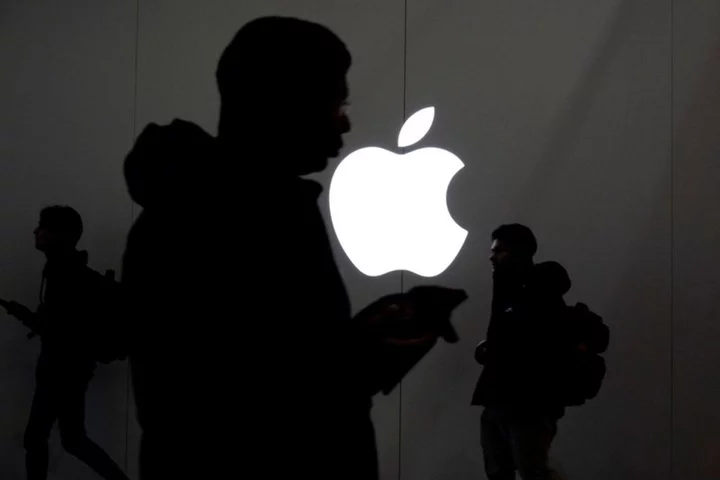
Apple shares hit all-time high ahead of developer conference
Apple Inc's shares on Monday hit a record high for the first time in 17 months, as the
2023-06-05 21:56

TikTok is launching new tool that will help creators label AI content on the app
TikTok said on Tuesday it will begin launching a new tool that will help creators label their AI-generated content
2023-09-20 04:27
You Might Like...
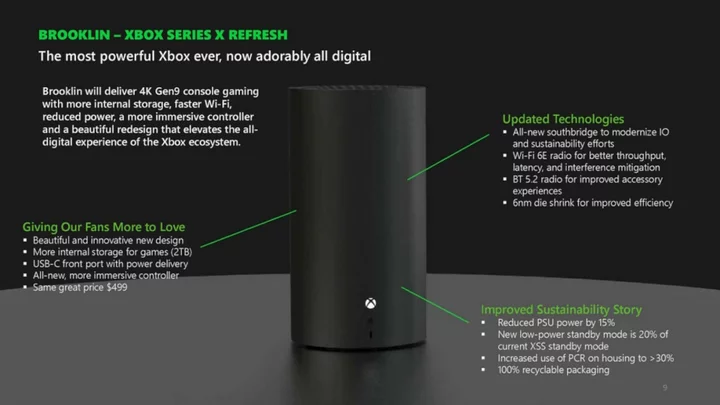
Xbox Series X Ditches the Disc Drive in October 2024
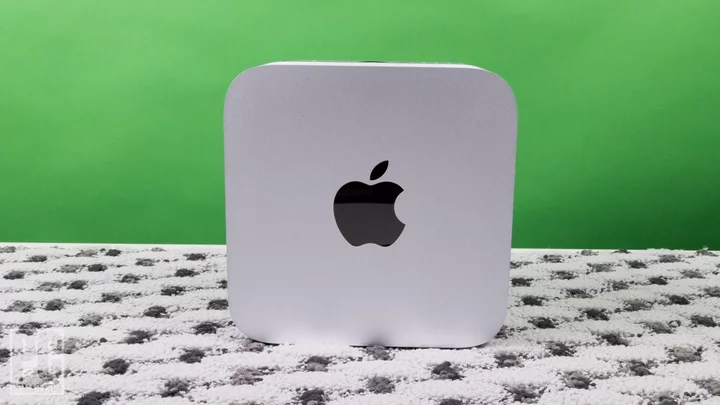
Apple Mac Studio (M2 Ultra, 2023) Review

Veritone Renews AI and Monetization Partnership with U.S. Soccer

Kickstart your fitness journey with $10 off the Amazfit Band 7

MW3 Trailer Seemingly Confirms Verdansk Return, But Likely Not as a Warzone Map
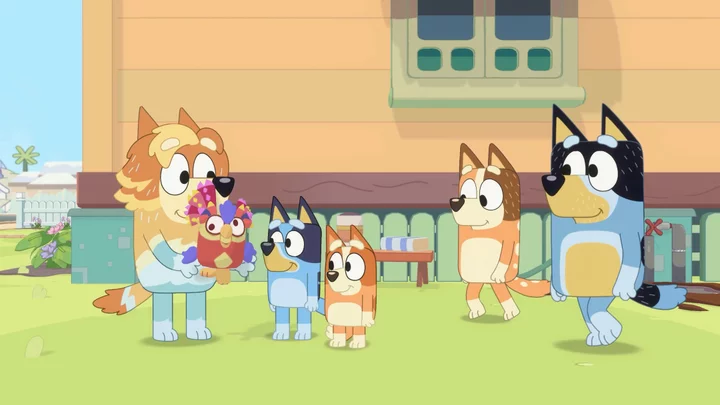
'Bluey: The Videogame' will let you play as Mum, Dad, Bingo, and Bluey
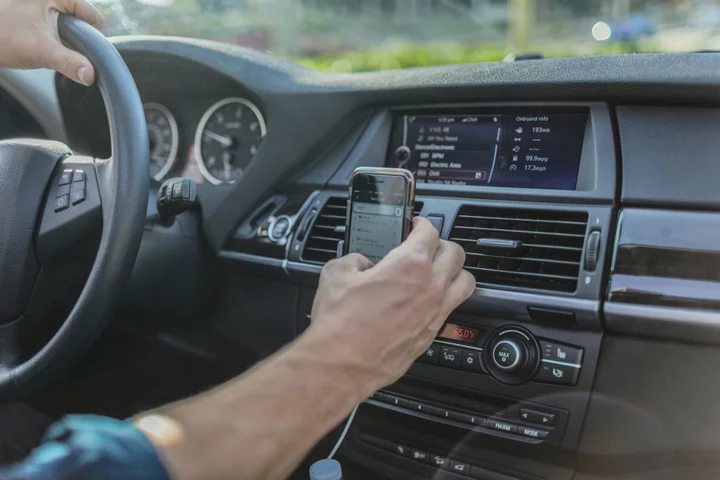
This Bluetooth receiver and transmitter is only $15

Elon Musk announces major Twitter logo change while playing a video game
